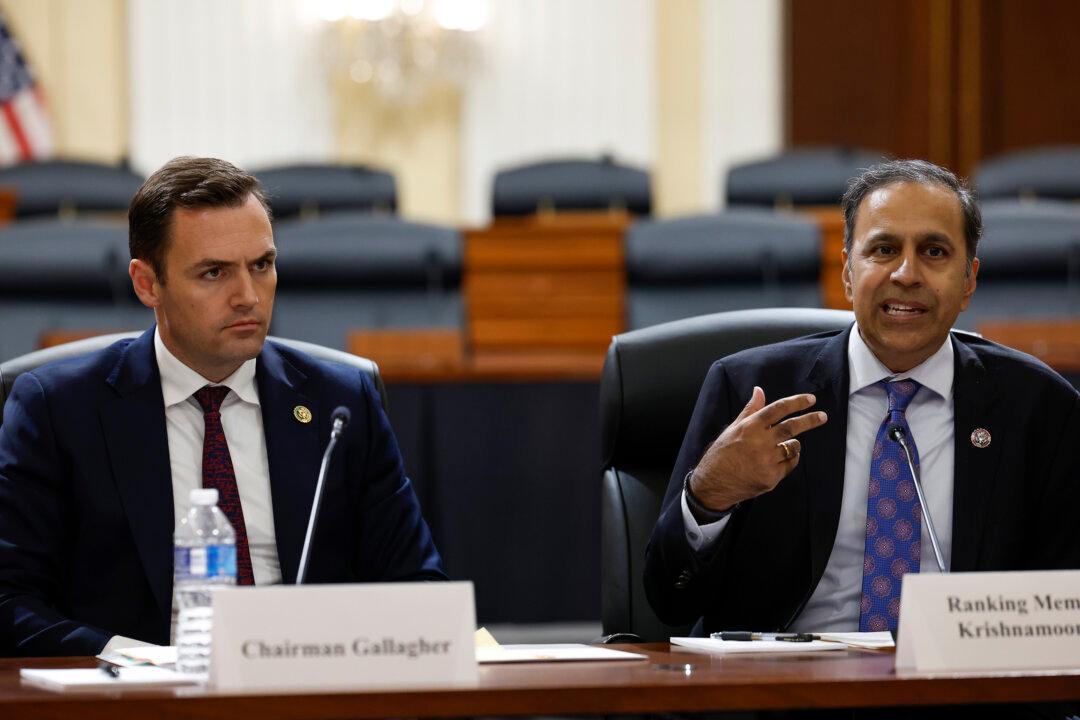A bipartisan group of lawmakers is urging the State Department to impose sanctions on Hong Kong and Chinese officials, following a decision by the city’s authorities to place bounties for information leading to the arrest of five overseas activists, including a U.S. citizen and a U.S. resident.
In a letter to Secretary of State Antony Blinken on Dec. 19, four congressmen—Reps. Mike Gallagher (R-Wis.) and Raja Krishnamoorthi (D-Ill.), chairman and ranking Democratic member, respectively, of the House Select Committee on the Chinese Communist Party (CCP), and Rep. Chris Smith (R-N.J.) and Sen. Jeff Merkley (D-Ore.), chair and co-chair, respectively, of the Congressional-Executive Commission on China—said the Hong Kong police’s bounties are the latest example of communist China’s transnational repression.






